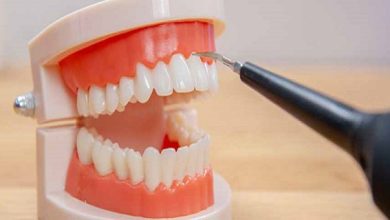The Importance of Dental Health for Canines: Understanding the Benefits of Regular Dental Chews

Key Takeaways:
- Identifying the significant role of dental chews in promoting oral health for dogs.
- Understanding how to choose and safely implement dental chews in your dog’s care routine.
- Recognizing the limitations of dental chews and knowing when to seek professional veterinary support.
Introduction to Canine Dental Health
A dog’s oral health can have far-reaching implications on its overall physical well-being, yet it is an aspect of care that often goes neglected until symptoms of problems arise. A dog’s mouth is the gateway through which nutrition is received and is also an area susceptible to bacterial overgrowth, plaque accumulation, and subsequent dental disease. The consequences of these conditions can range from halitosis, discomfort, and tooth loss to more severe complications like infections with systemic repercussions. To help prevent these issues, veterinarians recommend implementing oral hygiene habits early on, including regular dental check-ups and employing products to maintain oral cleanliness.
One such product category is dental chews, which play a vital role in the fight against periodontal disease by mechanically cleaning a dog’s teeth as they chew. Providing dog dental chews is a proactive measure that can supplement daily dental care routines, offering a pragmatic and enjoyable means for dogs to naturally combat plaque and tartar buildup—common culprits of dental woes in canines. When infused with natural ingredients that dogs love, these chews enhance oral health and cater to their inherent chewing instincts, doubling as a tool for satiating their innate need to gnaw.
Understanding Dental Chews and Their Role
Dental chews serve a multifaceted function in canine dental care. Their primary purpose is to mechanically remove food particles and debris that sit along the gumline and on the tooth surface, which, if left unremoved, can harden into tartar and foster bacterial growth. The abrasive action of the chewing process, much like the effect of a toothbrush, helps to dislodge these particles. Additionally, several brands include special enzymes or ingredients in their chews that can aid in breaking down plaque chemically. Research has shed light on the positive influence of these chews on oral hygiene, showing a marked decrease in incidences of periodontal diseases among dogs who regularly use them.
Manufactured dental chews are available in various forms, from edible treats to rubber or nylon toys and even as medicinal products. The carefully designed textures and resistance levels ensure that as the dog chews, the material rubs against teeth surfaces, scouring off unwanted buildup. This direct contact is essential for the health of teeth and gums and is an underlying reason dental chews have become prominent in canine oral health protocols.
Choosing the Right Dental Chews for Your Dog
While the market is flooded with numerous options for dental chews, selecting the right type for your dog can be crucial to the product’s effectiveness. Factors influencing this choice include the dog’s size and breed, often dictating the jaw strength and chewing capability. The physical characteristics of the chews should complement the dog’s attributes—for instance, smaller breeds typically require smaller, less dense chews. Similarly, larger breeds may need more extensive chews to withstand their powerful jaws.
Furthermore, life stages from puppyhood to senior years should inform the selection of an appropriate dental chew. For example, puppies have delicate, developing teeth that require softer chews, while older dogs might need more easily digestible options due to potential digestion issues. The dog’s dietary restrictions and preferences must be considered, too, to avoid allergenic ingredients or cater to specific nutritional needs. Always prioritize dental chews crafted with natural, wholesome ingredients to ensure they contribute positively to the dog’s overall diet. Vetting the chews for quality can prevent potential health concerns arising from ingredients of dubious origin.
The Benefits of Regular Use of Dental Chews
A consistent regimen incorporating dental chews can benefit a dog’s oral and systemic health. Regular application reduces the likelihood of plaque becoming a permanent fixture on one’s teeth in the form of tartar. This hard deposit causes gum irritation and provides a sanctuary for bacteria to thrive. These bacteria can infiltrate the bloodstream through inflamed gums, creating potential risks for organ damage in severe cases. Dental chews also aid in massaging the gums, promoting adequate blood flow and, consequently, better gum health. These benefits translate into fresher breath and a more pleasant interaction for owners bonding with their pets.
From a financial standpoint, the routine utilization of chews can reduce the frequency and necessity of professional dental cleanings, which can be costly. Veterinary dental procedures often require anesthesia, which carries its risks; hence, preventive care facilitated by chews is a safer and more economical alternative in the long term. The benefits of preventing dental diseases through these chews can be seen as an investment in the dog’s quality of life and the owner’s peace of mind.
Incorporating Dental Chews into Your Dog’s Routine
The successful integration of dental chews into a dog’s daily routine requires consideration of both the pet’s habits and the product’s intended usage instructions. Introducing dental chews within a structured framework that aligns with feeding or playtime is ideal, helping the dog associate it with positive experiences. Manufacturers often provide guidelines on the appropriate number of chews per day or week based on the dog’s size and weight, which should be adhered to for optimal benefits. As part of responsible pet ownership, monitoring the dog when a new chew is introduced is crucial, as well as observing their interaction with the product to ensure it is being used as intended.
It is also important to remember that while dental chews are essential, they do not exempt owners from observing and managing their dog’s overall dental care, which includes monitoring changes in chewing behaviors, conducting routine oral inspections, and seeking veterinary advice when concerns arise. Introducing good oral care habits should also involve:
- Educating the dog to accept the handling of their mouth patiently.
- Making it easier to detect any issues early on.
- Addressing them before they evolve into more pressing problems.
Conclusion: Emphasizing the Importance of Canine Dental Care
Dental health should occupy a place of prominence within the overall care framework for a dog. By incorporating dental chews into daily routines, regular teeth brushing, and professional veterinary care, dog owners can proactively safeguard their pet’s oral hygiene. These efforts are crucial in staving off dental diseases that adversely affect a dog’s health and vitality. As an integral component of comprehensive canine healthcare, proper dental care, bolstered by dental chews, offers a simple yet effective means to ensure our devoted companions lead a whole and healthy life.




